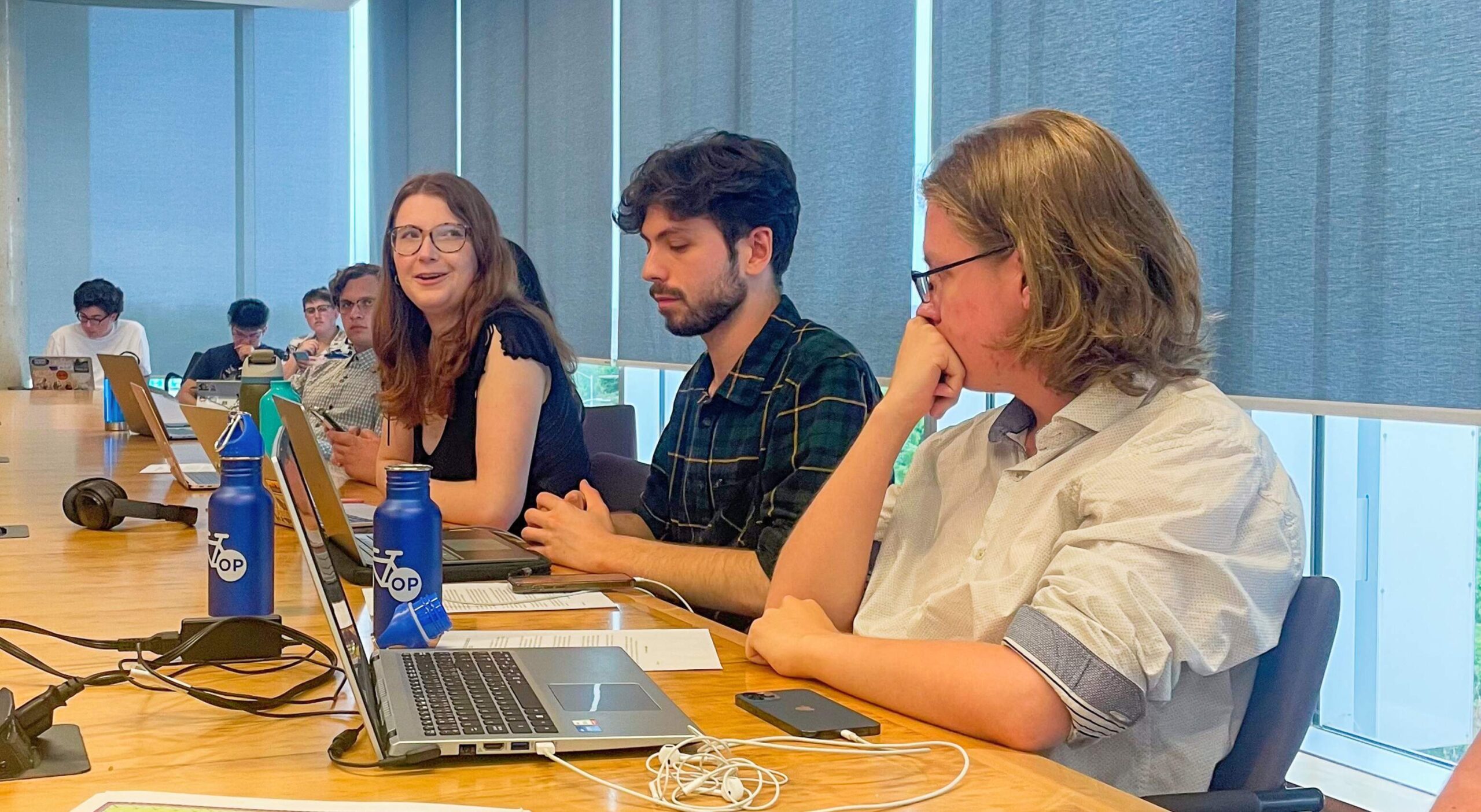Overworked, under-resources, and overlooked — the EOC needs to change for the better
The University of Ottawa Student Union (UOSU) is an organization with a lot of promise and problems. These problems are often talked about and debated ad nauseum; low engagement, at times questionable transparency, and more. But one of its largest, and most overlooked, problems is hidden in the minutiae of the day-to-day operations of the Union — the system for oversight of our Union’s Executive Office is broken.
I would know — I’ve been on the Board of Directors (BOD) for UOSU for more than a year now, as both a member and co-chair of the Executive Oversight Committee (EOC). The current system for transparency and honesty in our executive office relies on the quality of our executive, the thankless unrewarded overworking of Board members, and blind trust. It is not a system built with checks and balances in case something goes wrong. We need to fix EOC if we want our Union to work. Luckily, the solution might be more obvious than we think.
To fix a problem, we need to understand it. The problem with EOC right now is fairly simple: the Executives hold all the cards, and the EOC cannot be reasonably expected to keep up. What do I mean by this? Well, the Executive as elected (or more often than I’d liked, hired) officials are only accountable to the Membership who, by proxy, is made manifest through the BOD and EOC. UOSU Human Resources staff are not responsible, and cannot discipline Executives, or deal with their issues — that is solely the role of EOC.
EOC is made up of five or fewer volunteer Board members, whereas the Executive is made up of seven or fewer full-time staff, many of whom have assistants. EOC is tasked with dealing with their time off, timesheets, accommodation requests, inter-executive conflict, and executive discipline, all while being given next to no resources.
Since it is run by Directors and not an Executive, EOC is the least-resourced committee in the Union, despite being arguably the most important. It has no budget, and there are no assistants or deputies to help, and there isn’t even an EOC email.
On one side, you have the Executives who work in an office, get paid, and reasonably expect that their requests — even if those requests themselves were absurd or out of the scope of EOC — be dealt with promptly. This comes especially as many of the executives do important and meaningful work, with many of themselves being overworked and frustrated.
On the other side, the EOC is unpaid and unresourced, reasonably becomes frustrated, overworked, and burnt out. Thus, unable to deal with the myriad of requests, demands, and expectations.
This creates a situation where issues, such as executive misconduct or inter-office disputes, are either being handled by overworked EOC members, or in the worst case not handled at all. This can be the result of the EOC not getting around to it due to being overwhelmed or the work being deprioritized, EOC members reasonably not wanting to add to their workload, or the Executive not trusting EOC to do their job, so issues aren’t mentioned to the committee. This leads to tension, distrust, and a breakdown in EOC’s ability to function. And when EOC breaks down, the result can be (and has been) disastrous.
But it doesn’t have to be this way — we must fix EOC and empower them. Currently, Board members cannot receive any remuneration for their work, but I have long proposed giving the EOC co-chairs an honorarium or stipend for their work. This would incentivize and reward the co-chairs for their work, which at times can border on part-time jobs, as well as allow them to devote more time to the committee.
EOC should also be given an email, something that is already in the works. This means that communication can be centralized to one email, ensuring continuity between terms. Finally, regular students should start paying attention to the work of EOC and other Board committees, monthly committee reports are available here; committees are where most of the work of the Board happens, and until they are accountable to students nothing will change.
We need our executives to be overseen competently, and the Executive Committee wants to be overseen and supported by the EOC. Our union needs a transparent, and disciplined executive, less drama and more action. But our union also needs executives who are supported, who feel like they can trust the people meant to oversee them, and who are happy at their jobs. Until we have that, and a reformed EOC is a key part of the solution, the same issues the Fulcrum has been reporting on for decades will keep happening.






